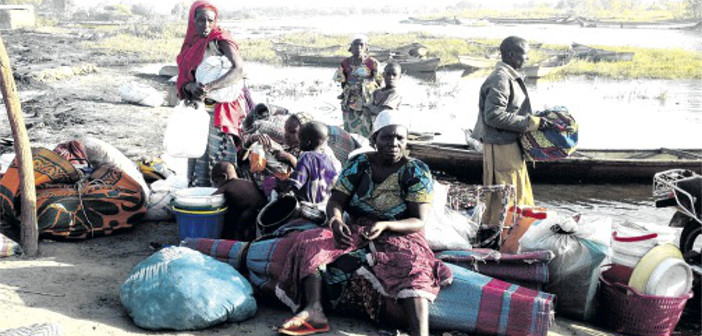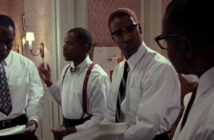Nigeria’s President Goodluck Jonathan appealed for more US help in fighting Boko Haram, as the Islamists struck again yesterday and called for a boycott of upcoming general elections.
The President for the first time claimed direct links between the Sunni radicals who have been waging a six-year insurgency in Nigeria and the Islamic State group in Syria and Iraq. He told the Wall Street Journal in an interview: “Are they (the United States) not fighting ISIS? Why can’t they come to Nigeria? “They are our friends. If Nigeria has a problem, then I expect the US to come and assist us.”
But Pentagon spokesman Rear Admiral John Kirby said there are no plans to send US troops to Nigeria. “I can tell you that there are no plans as I speak here to send unilaterally… or to add US troops into Nigeria. There are no US troops operating in Nigeria,” he told reporters. Kirby said the United States was in the early phases of helping establish a multi-national task force of African nations to help Nigeria defeat Boko Haram.
Jonathan’s comments were published as hundreds of Islamist fighters invaded the northeastern city of Gombe, firing heavy guns and throwing leaflets calling for locals to shun the elections. The attack, which began at about 9:00 am (0800 GMT), saw residents flee and the authorities impose a 24-hour lock-down in the city, which Boko Haram has repeatedly targeted.
Nigeria’s defence headquarters said it had repelled the attack. “The terrorists’ attack on Gombe has been repelled. Troops are in pursuit”, it said on Twitter. Boko Haram has opened up two new fronts in its campaign to create a hardline Islamic state in northeast Nigeria, pushing into neighbouring Niger last week and, for the first time on Friday, into Chad. It has also increased the frequency and intensity of its attacks on northern Cameroon. The increasing regional threat has led to the deployment of troops from all three neighbouring countries, reflecting security fears.
Jonathan and his Government have long sought to portray the insurgency as being fuelled by outside forces and he has previously called Boko Haram “Al-Qaeda in west Africa”. Critics have interpreted his attempt to blame foreigners for the violence that has left more than 13,000 dead and displaced more than one million since 2009 as a diversion from national failings.
Boko Haram, which loosely translates from the Hausa language widely spoken in northern Nigeria as “Western education is forbidden”, started out in 2002 as a largely peaceful Islamist movement. But it has been transformed in the last six years from a rag-tag group of guerrilla fighters into a conventional army, seizing territory and dozens of towns in three northeast Nigerian states.
The group has generally not been thought to have any direct operational links with overseas jihadists, although some fighters may have received training from Al-Qaeda-linked militants in north Africa. Boko Haram leader Abubakar Shekau has previously mentioned IS group leader Abu Bakr al-Baghdadi in videos but has not pledged allegiance to the outfit.
The Nigerian group’s tactics of extreme violence and mass casualty hit-and-run raids, bombings and suicide attacks also predated those carried out by the IS group. But Jonathan told the US newspaper that Nigeria had intelligence reports that Boko Haram was receiving “training and funds” from IS militants.
The United States has provided surveillance and intelligence specialists, as well as aerial drones, to help in the high-profile hunt for 219 schoolgirls kidnapped by Boko Haram last April. But bilateral ties have since been fraught over Washington’s refusal to provide military hardware because of concerns about human rights abuses in the Nigerian army.




